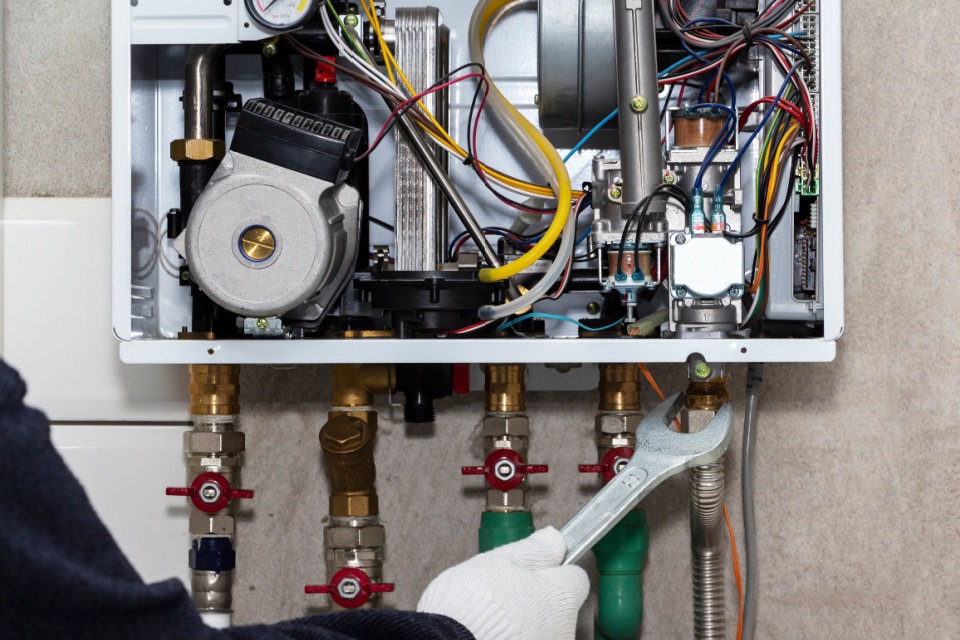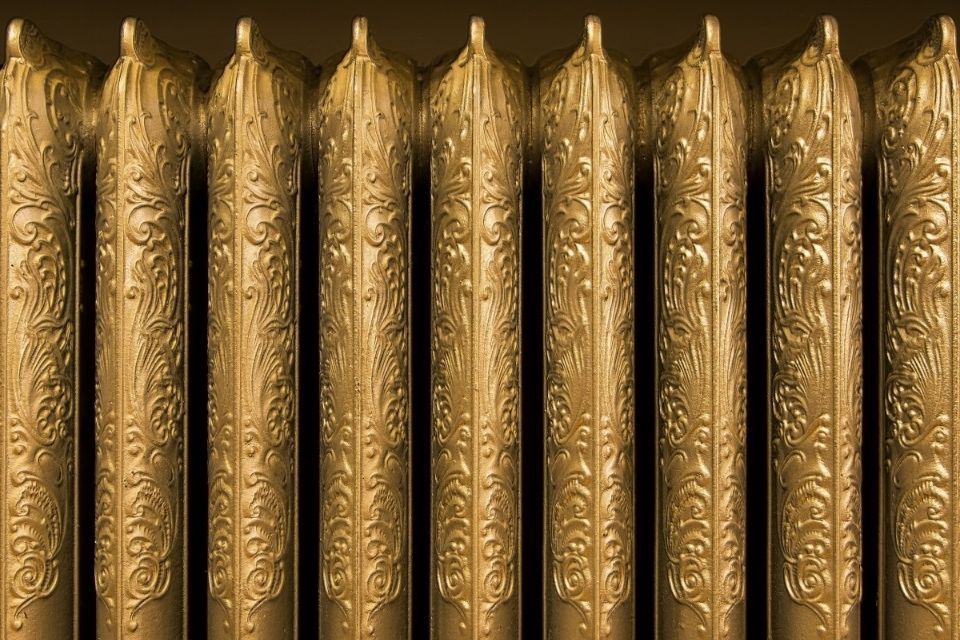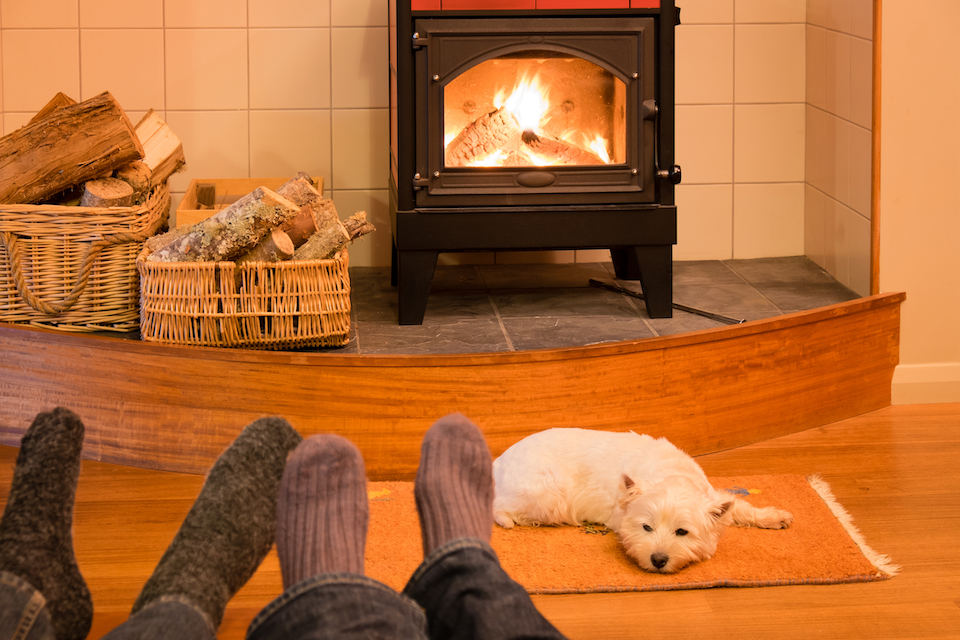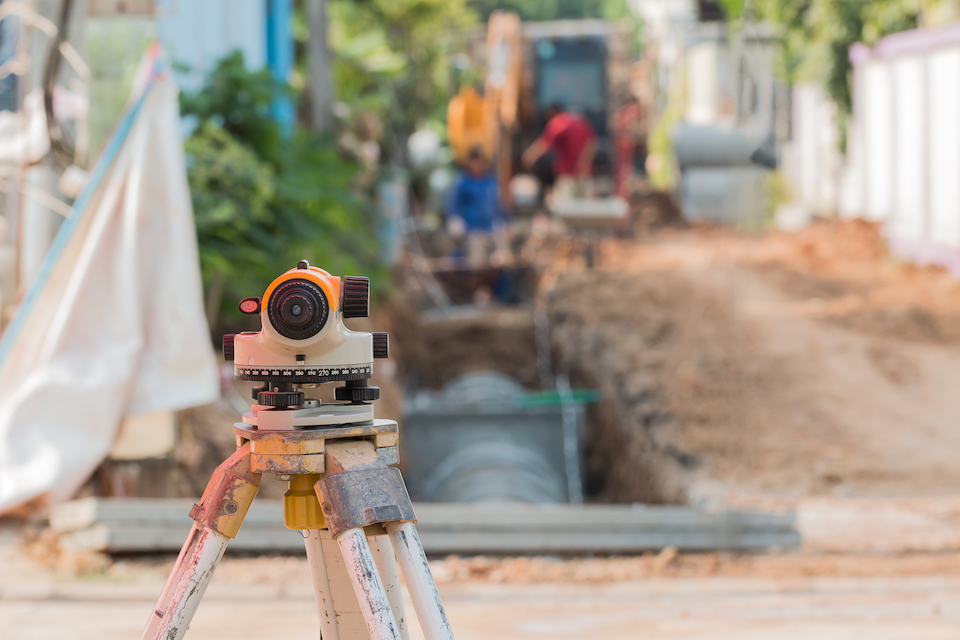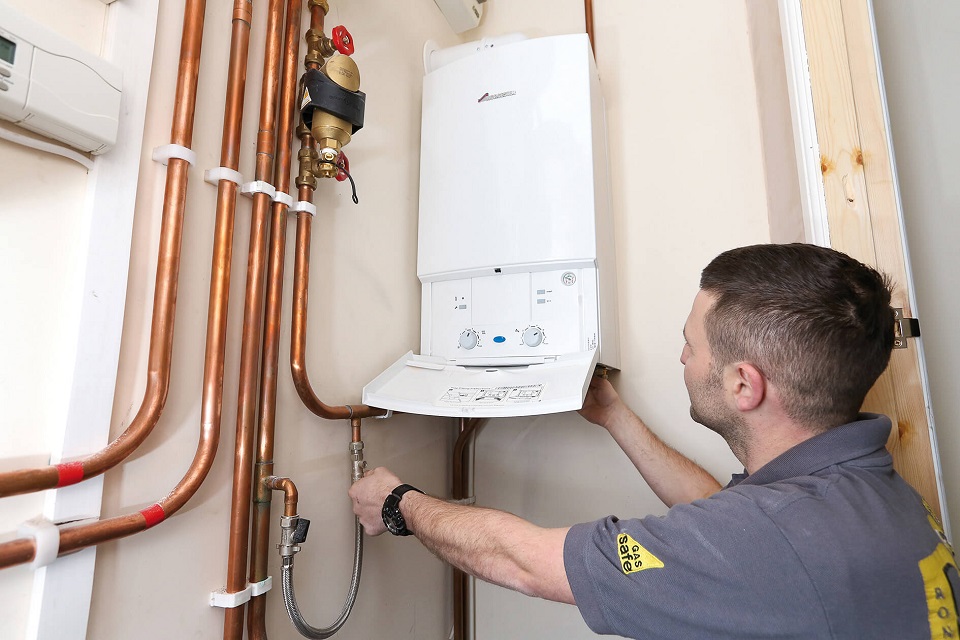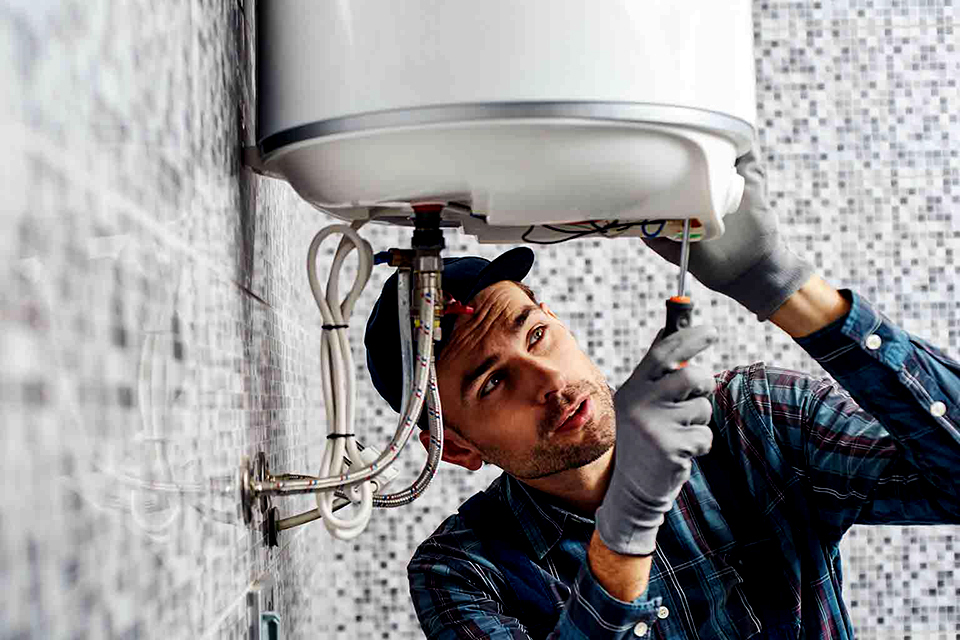Has Your Boiler Stopped Working?
A broken boiler isn't just a broken part of a machine; it also breaks our comfort indoors during the winter months. More so, our heating not working often tempt us to look for the quickest and least expensive solution to gain immediate satisfaction.

As convenient this act might be, it isn't the best approach to boiler issues. Hence why in this article, we have highlighted some possible causes of boilers not functioning, along with a step by step guide to help solve the mentioned problems.
Why is My Boiler Not Working?
Boilers can stop operating for many reasons. Some of which include leaks and drips, the absence of a pilot light, or low levels of pressure. No matter the issue that causes your boiler not to work, there is always a solution.
No Heat or Hot Water
If you have no heat and no water, there might be a significant issue with your boiler's pressure or thermostat. The problem could also be due to a broken airlock, diaphragm, or a valve; thus, these parts may need to be replaced with new, healthy ones. It is safer to employ a registered engineer to help diagnose the issue before choosing a solution.
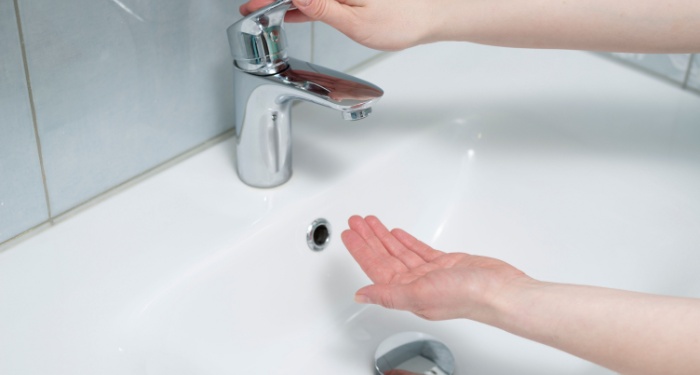
Leaking & Dripping
Your boiler could be leaking water for a variety of reasons. That said, leaks are mostly caused by broken internal components, like pressure valves or pump seals.
When these parts are worn out, they don't function as they're meant to, affecting the other, healthy parts of your heating system. A break in the flow of water at any point within your system will prevent you from having warm water in your home.
Banging or Whistling Noises
Subtle whistling noises, similar to those heard when a kettle is boiling, is a sign that your boiler has issues. These strange banging and rumbling noises are caused when there's a build-up of sludge and limescale in the boiler's heat exchanger.
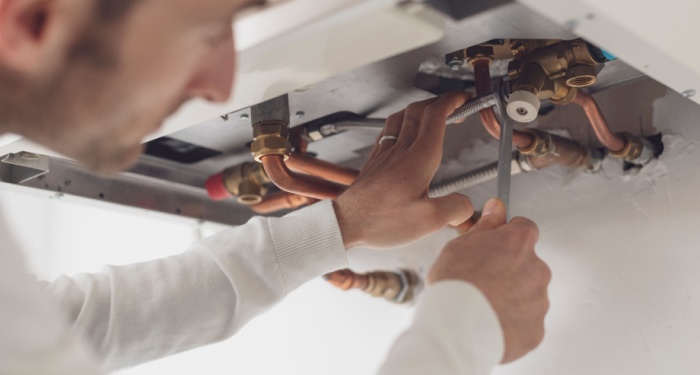
More so, the deposits in the burner can overheat your water and cause it to boil, creating those noises. This process is known as kittling and is very common when hard water passes through your pipes.
Pilot Light is Out
This next problem could be caused by a large burner in your heating system, which needs to be lighted for water to heat. To light this burner, boilers need a pilot light. Pilot lights are small blue flames that are kept alight at all times.
When the pilot light goes out, it prevents your water from heating, which leaves you with icy, cold water every time. The first thing to check before attempting to fix this problem is your gas supply. Maybe it's not enough and needs to be increased.
Losing Pressure
The pressure is vital if you want your boiler to operate at maximum capacity. Luckily for us, every boiler comes with a pressure gauge that allows you to keep tabs on the amount of pressure your boiler has. If the needle is below the 1 bar mark, it signifies low pressure, which must be increased as soon as possible.
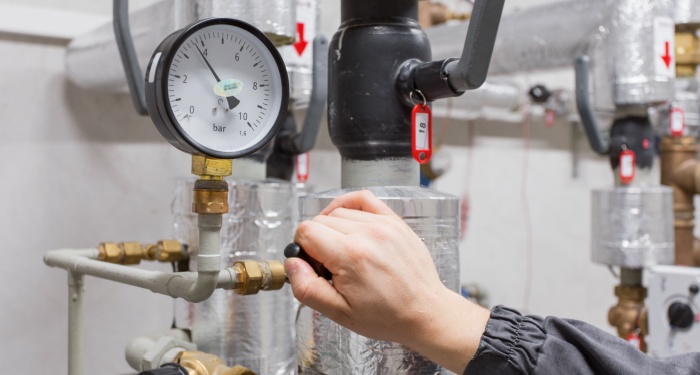
When the gauge moves above the 1 bar mark, it could lead to high pressure, which can affect your heating system. Recent bleeding exercises usually cause low pressure, a leak in your system unit, or an old and worn out pressure relief valve.
Radiators Are Not Getting Hot
Radiators work back to back, and as such, they're prone to experience some form of build-up from the water your boiler works with. When your heater stops getting hot, it is possible that its experiencing build up within. Build-up could be sludge or limescale, and either one can prevent the movement of heat to your heating system.
The best way to test for this is to touch the base of your radiator. If it's cold, it means there's some debris built up on the inside. You can conduct a bleeding exercise by yourself or call in an engineer to perform a power flush.
Boiler Switching Itself Off
Sometimes, your boiler stops operating not because of low pressure, the absence of water, or even leaks; it simply just decided to turn itself off. This can be irritating, and you might wonder how it is even possible. Well, the primary cause of this is due to issues with the thermostat.
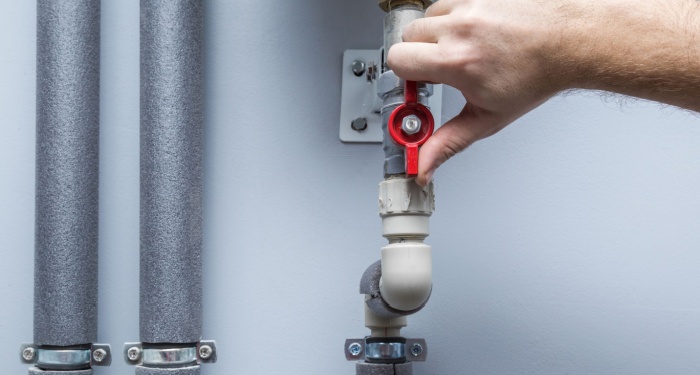
When thermostats encounter problems, they can switch on and off at irregular intervals. This is likely because the thermostat is old, or has merely shifted from its original position, which makes its operation difficult.
Frozen Condensate Pipe
There are three types of condensing boilers, namely the regular, combination, or the system boiler. No matter the type you use in your home, each one comes with a pipe called the condensate pipe, which is responsible for transporting acidic water away from the boiler.
Since the water isn't needed, the condensate pipe usually runs through to the exterior of your home, where the water is disposed of.
During the colder days, there's a high chance the pipe will freeze, along with the water inside it. This will further prevent your boiler from functioning correctly, damaging the internal parts in the process.
Heating Not Turning Off at Scheduled Time
There are many different reasons why your heating won't shut down when it's supposed to. The primary being due to low water pressure - where the unit needs to work longer to produce the same output. A second reason could be due to issues with the thermostat.
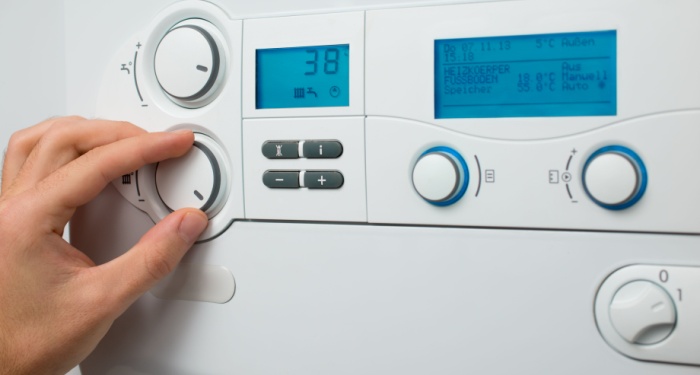
When either of these problems arises, they are very easy to fix but require help from professionals. If all else fails after checking for all the earlier signs, this might be why your boiler isn't operating.
How to Fix a Boiler?
There are two significant ways to fix a boiler that isn't working. The first is more suitable for DIY enthusiasts; thus, it doesn't require a skilled professional like a heating engineer. The next is to engage skilled and qualified personnel for the jobs when required, to make your home safer and prevent further damage to your heating system.
More so, if your boiler is causing problems due to its age, you might want to consider getting a new one altogether, since old boilers don't run efficiently and are prone to more faults and damages.
The next section of this article breaks down the various causes of a non-functioning boiler, with solutions to each of them.
No Heat or Hot Water
No heat or water is coming from the boiler? This is a severe issue and is most often caused by interruptions in the pipes or radiator. The problem could also be related to the thermostat, airlocks, or low water levels. No matter the cause, the lack of water and heat flow can be damaging to your boiler.
The best way to fix such an issue is to inspect the unit with help from a heating engineer. Check all parts to find out those that are broken, damaged or locked. Unclog the blocked parts, and change the old, worn-out ones. This will clear up the system and allow the elements to flow freely whenever needed.
Leaking & Dripping
Every boiler has a gauge where you can read its current pressure. For optimum operation, your measure needs to stand still on the green patch provided. This means there's a perfect balance between the amount of water and heat in the system.
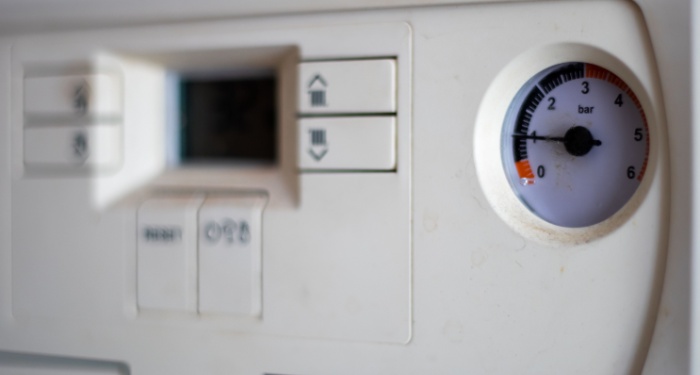
So, try as much as possible to keep the gauge from the red danger zone, which can bring about boiler complications. If your boiler is encountering some leaks or drips, it might need an inspection.
It's also worth noting that the best person to conduct this inspection is a heating engineer. The leaks can be within or outside the boiler’s internal parts. If they occur within the boiler, it could lead to eternal damage not just for the unit but also for your floorboards and carpets.
So, inspect the machine to find places that need replacement or securing as soon as possible with the help and expertise of a boiler engineer. In some dire cases, you will need to start considering the idea of a new boiler altogether.
Banging or Whistling Noises
Banging or whistling noises in your boiler could have various causes. The first could be the presence of sludge or limescale at the base of the radiator or warping pies. The first step is finding the cause of the noise. If it's a warping pipe, merely moving the surface leaning against the pipes is enough to rectify the situation.
A blocked radiator will require bleeding by a professional, and any other blockage might demand a power flush, which is the boiler equivalent of a spa day. Consult a professional with any of the decisions to prevent you from overspending on repairs or fixing something which isn't broken.
Pilot Light is Out
The boiler's pilot light, which can be described as a tiny, internal flame, needs to be lit to ignite the gas in your boiler and allow the unit to deliver heat and hot water when needed. Igniting the pilot light can be very tricky since the light can go out in the process, causing breakages in the flow of hot water.
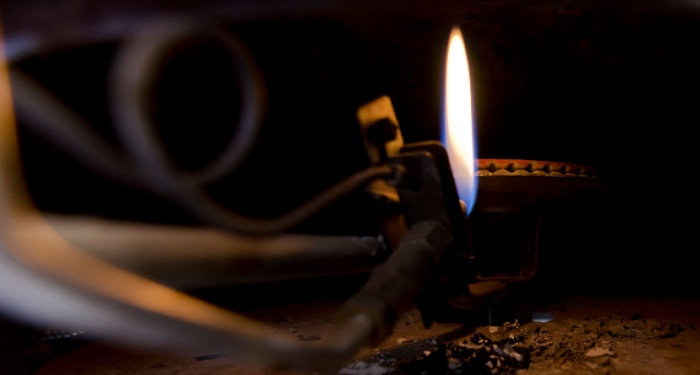
To check for a broken pilot light, look through your casing, and check out the state of the boiler flame. If the flame is out, you might have to restart or reset your boiler. If, after several tries, the boiler refuses to give in and operate, you will need to call in a heating engineer.
Losing Pressure
Pressure in your boiler exists when there is a perfect balance between the amount of air and water in the sealed system. When these two elements are perfectly balanced, the boiler can operate properly without any issue, whenever water is demanded.
More so, too little pressure reduces the flow of water into the boiler, while too much pressure causes the water in your system to increase far above the allowed capacity.
- To find the best balance, you need to adjust the boiler pressure in these easy steps;
- Locate the filling loop, which Is a silver flexi pipe, found underneath the gas boiler. This flexi pipe usually has one or two taps on.
- If the pressure needs an increase, open both valves, (or the single valve if there's only one) until they lock at 45 degrees, while keeping your eye on the boiler's pressure gauge. The gauge should move to about 1 bar, after which you can stop opening.
- If you need to reduce the pressure, turn the taps until the gauge reads up to 1 bar, or is within the green zone.
Radiators Are Not Getting Hot
If your boiler refuses to respond to your call, it might not be its fault, but rather that of the radiator. When heating systems are used regularly, their parts start to age, and they encounter problems. Some parts of your heating systems, like the popes and radiators, are made from metal, and as such, they are prone to becoming congested with debris and sludge, which can lead to corrosion.
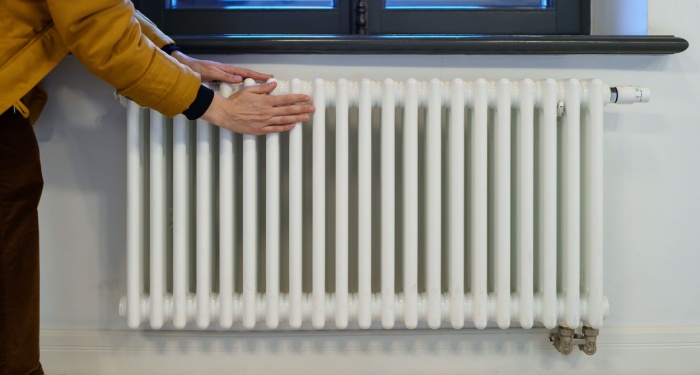
Additionally, corrosion might also cause a blockage in the system and prevent the free flow of water and heat. One basic sign that your radiator has sludge is when it's cold at the bottom. For such instances, you'll need to flush your entire system. This is best done by a heating engineer who will flush both the radiator and all pipes.
Boiler Switching Itself Off
Sometimes, your boiler isn't working for a straightforward reason; it is off at the mains. Beware that some engineers see this as an opportunity to make more money, especially for homeowners that are clueless about boilers.
More so, a boiler can turn off at the mains or even in the home without you knowing. It can be from human error or a simple case of a bad memory. No matter which one it is, they can be salvaged in time and don't need the help of any installation company.
When you realize your boiler isn't working, the first step is to check whether it has indeed been turned on or off—Check-in and out of your house, paying close attention to the mains. You might realize that it's off, and all you need to do is turn the little bugger back on.
Frozen Condensate Pipe
Condensate pipes are found in every boiler. These pipes run through from your boiler to the nearest external wall and are responsible for removing excess liquid from the boiler. Excess liquid in your boiler often comes from condensation, which is very typical with most boilers. The downside to the expelling of excess water is that the drops are highly prone to freezing during cold weather.
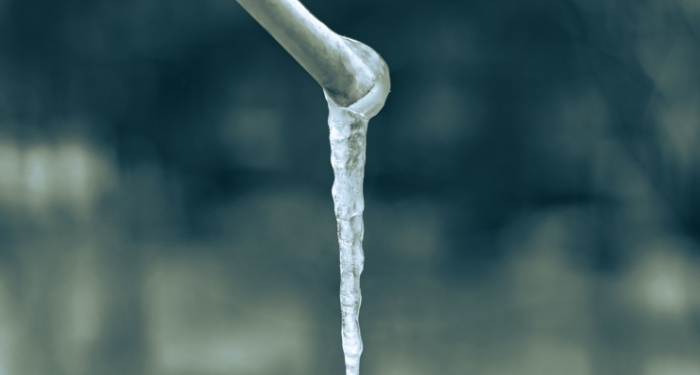
To help curb this issue and prevent blockage within the heater, you need to thaw out the frozen liquid. This process doesn't cost much at all. So, go ahead and pour some warm water over the condensate pipe, concentrating on areas that are frozen. Keep pouring until the frozen water melts away. Once this is done, restart the boiler. Ensure that you check the pipes regularly for freezing, to prevent the problem from repeating itself.
Heating Not Turning Off at Scheduled Time
A central heating programmer or boiler timer is likely part of your boiler package. This allows you to schedule when the heater should be turned on. This is a very great tool since it takes the scheduling stress off your mind.
That said, it's also worth noting that there is a difference between the programmer and the boiler timer concerning their function. The latter allows you to turn the central heating on at different times on different days. The former is the boiler timer that schedules the heating to a particular time each day.
If the heater isn't turning off at the scheduled time, or it isn't working as it's meant to, the issue might stem from the programmer or timer; thus, it will need to be checked and reset. Depending on the unit's manufacturer, the resetting process might differ, so be sure to read the manual.
How Much Will It Cost to Fix My Boiler?
A boiler breakdown is easily any homeowner's worst nightmare, particularly in the winter months. Besides how uncomfortable it can get when it's cold indoors, the cost attached to repairing boilers can be very depressing. Repair costs vary greatly, depending on the damage, and the extent of the fault. As for a new boiler, that will cost you anything from £2100 to £3500.
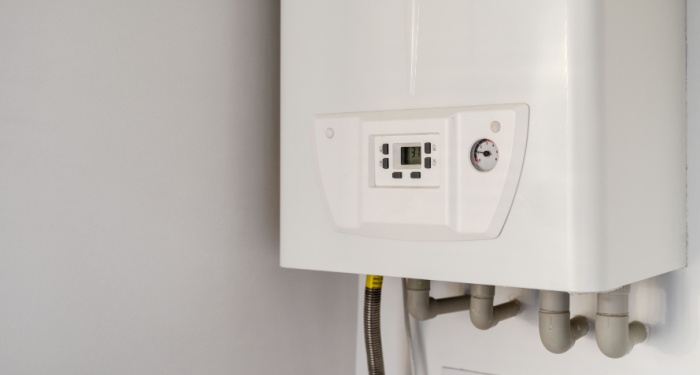
Due to the high prices attached to these repairs, luckily, the UK government allows homeowners to apply and arrange for home care insurance, which covers boiler repair costs and call-outs made within the duration of the policy.
How Much a Heating Engineer Gets Paid Per Hour/Per Day
Again, this depends on the extent to which the damage or fault occurred. A person with a day-old boiler issue can't be charged the same as someone who's had the problem for months. For minor repairs caused by short-term issues, labour costs are anything between £150 to £200 a day. Minor issues include the replacement of a boiler fan, printed circuit, or a gas valve.
That said, it's wise to clarify once again that the exact cost of fixing a boiler is tough to state since many variables come together to determine pricing. Some of the factors affecting the price of your boiler include the age and type of boiler in use and the reason for the damage. The older your boiler, the more expensive it'll be the repair, concerning the parts and labour know-how.
How Much is a Replacement Boiler?
Sometimes, fixing the boiler doesn't take away the problem. Even if it does, you may still be left with some minor issues that can't seem to go away. In such instances, the only other option is to replace and install a new boiler entirely. The process of replacing a boiler includes the removal of the old one, the purchase of the new one, and it's installation. For all these processes, money is required.
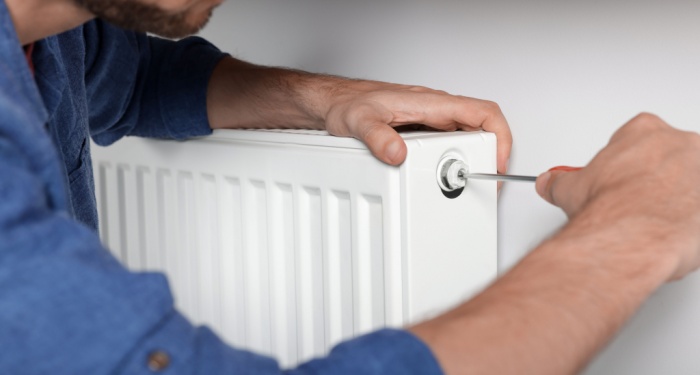
For a new boiler, expect to pay between £1,600 and £3,500 for a combination model, and between £1,500 to £2,800 for a system boiler, and £1,400 to £2,500 for a heat-only system. Labour will be dependent on your location; the type of boiler being fixed as well as the hourly rate of the person employed.
FAQs
Q: Who qualifies for a boiler grant?
A: The government offers boiler grants to homeowners under their ECO scheme. This came about due to the expensive nature of boilers compared to their necessity in the home. Despite this grant and its availability to citizens, there are still strict criteria which makes some people more eligible than others.
The initial and most critical criteria are your boiler's connection. You need to be connected to the mains gas supply, to get a grant for boiler repairs. Also, the boiler in question should be at least five years old, and finally, you must be the official owner of your home to claim a grant. You cannot claim this grant for repairs if you live in a privately rented property or a council-owned home. The best option for those who don't qualify for boiler grants is to look into the monthly finance scheme the country makes available.
Q: What happens if boiler pressure is too low?
A: Low boiler pressure, in its initial stages, shouldn't be a significant cause for concern, since they don't pose threats to you or your home. However, if left unattended, it can cause a lot of damage to your boiler and demand a lot of resources to fix.
Another way low boiler pressure can be a disadvantage is when it affects your heating system's overall effectiveness and efficiency. It becomes hard for your home to be kept warm. More so, the double operation of the heating system to provide the same amount of heat will result in a subsequent increase in your energy bills.
Q: How do you know if your boiler is going to explode?
A: These are infrequent occasions, but yes, your heater or boiler can explode. Water heater explosions can be very devastating when they occur, but the good thing is, some signs give you a heads up before the blast. Look out for the following signs, and you'll be able to prevent unnecessary spending on repairs and damage.
- Leaking pressure valve: at the side of your heater, you will find the pressure relief valve. When the pressure in your tank reaches high levels, this valve opens up to allow water to leave for the pressure to return to normal. The presence of dripping or leaking water from this valve is a sign that your boiler has high pressure, and as such, requires some attention.
- Rotten egg smell: this smell is like sulphur mixed with rotten eggs, and it's very distracting. It comes about when there's a gas leakage inside the heater. As soon as you smell gas, contact an experienced plumber to fix the issue before it escalates.
- Knocking/popping noise: the popping and knocking noise is similar to that made by a popcorn machine. It often means there's water trapped under sediments in your heater. These sediments come from the water, and they get heated when there's an increased temperature within the heater.
Q: How long should a boiler last?
A: Every boiler, once manufactured by a trusted company, is to be operable for up to 15 years. The typical lifespan of boilers lies between 10 and 15 years. To ensure that you purchase only the best, the following steps will come in handy;
- Select and invest in a reliable and efficient model made by trusted brands. Do your research online, check out product reviews, and find one that suits your budget.
- The boiler can be perfect, but you might invest in the wrong size, and it'll cost you. When searching, be sure to find the right size for your home and your water heating needs.
- Only allow a registered engineer to conduct work on your boiler. This isn't only legal but safe for you and your home. Getting help from the experts will help prolong the lifespan of your unit and, in turn, help you save money.
Q: Why will my boiler not fire up?
A: The primary reason why any boiler won't fire up is that its thermostat has been set too low. Until the level set on the boiler system is higher than that of the environment within which it operates, the heating system won't begin operation. To solve this issue, you only need to increase the thermostat to a higher level.
Sources
- https://heatable.co.uk/boiler-advice/boiler-not-working
- https://www.moneysupermarket.com/money-made-easy/the-true-cost-of-fixing-a-boiler/
- https://www.theheatinghub.co.uk/guide-to-boiler-installation-costs
- https://www.boilergrants.org.uk/eco-qualification-criteria.html
- https://www.benbronston.com/4-signs-water-heater-explode/

